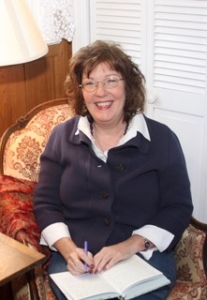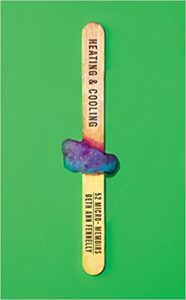Why Keep a Personal Journal?
 Have you ever wanted to keep a journal but didn’t know how to begin? Perhaps you’ve asked yourself, “Why should I believe for a minute I have anything at all interesting to say?” Have you ever abandoned a journal out of boredom or dismissed personal writing as a waste of time?
Have you ever wanted to keep a journal but didn’t know how to begin? Perhaps you’ve asked yourself, “Why should I believe for a minute I have anything at all interesting to say?” Have you ever abandoned a journal out of boredom or dismissed personal writing as a waste of time?
More than sixteen million blank journals are sold annually in stores and on the internet.* As technology threatens to replace traditional forms of communication, there appears to be an opposite impulse to slow down and talk to ourselves. Here’s the catch: While vast numbers of blank books are purchased, few are ever fully used. Would-be journal writers often give up before realizing journaling’s many benefits.
There’s good science from psychologists and medical clinicians claiming personal writing improves your health. Physically, the act of simply sitting down in comfortable surroundings, picking up a pen, and writing your thoughts and feelings almost immediately lowers your blood pressure, reduces your heart rate, and increases the production of T-cells that pump up your body’s immunity system.Writing helps keep your mind sharp by expanding your observational skills and memory. As a spiritual practice, writing strengthens your faith. Professional writers and artists have long used journals to develop ideas, break through writer’s block, and practice their craft. In your journal, you are likely to discover a never-before recognized source of creativity within yourself.
How Journal Writing has Helped Me: A Short List
- Increased my reverence and gratitude for my life and Life
- Helped me identify what I need to be happy
- Provided a safe place to unlock and understand my feelings, explore my emotional life, and recognize my moods and what caused them
- Helped me appreciate my childhood
- Led me to realize that I am a creative and imaginative person
- Boosted my critical thinking and writing skills
- Enhanced my self-confidence and given me a greater sense of peace
- Brought me to a place closer to self-acceptance and serenity
Journal writing is a path to inner peace. As a consequence, I believe I have brought a little peace into the lives of my family, friends, and colleagues. Perhaps this is too much of a stretch, but imagine: If, as the title of physicist Conrad Lorenz’s paper on chaos theory suggests, the flap of a butterfly’s wings in Brazil might set off a tornado in Texas, isn’t it possible that one person’s journal writing might contribute to world peace? Isn’t it a joy to think so?
*Estimates compiled from Leaving a Trace, The Art of transforming a Life into Stories by Alexandra Johnson. Little, Brown and Company, 2001.
ABOUT MELINDA: Melinda L. Ferguson grew up in Lima, Ohio, graduated from Miami University, and moved to New York City to earn and MA from Columbia University before embarking on a career in Manhattan as an editor for major book companies. After her family moved to Long Island, Ferguson taught English classes at Suffolk County Community College, English as a Second Language at the Smithtown Adult Education Program and facilitated memoir writing workshops at community libraries. In 2016, Melinda received an MA degree in Creative Writing & Literature from Stony Brook/Southampton University. Melinda moved to Charlotte in 2016 to be near family.




